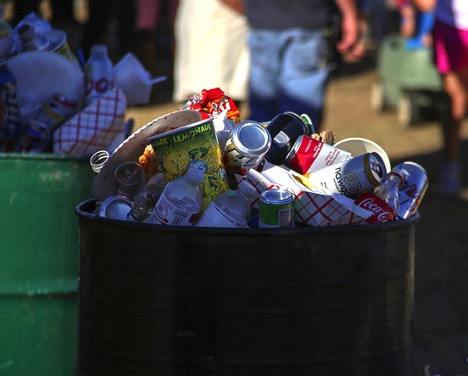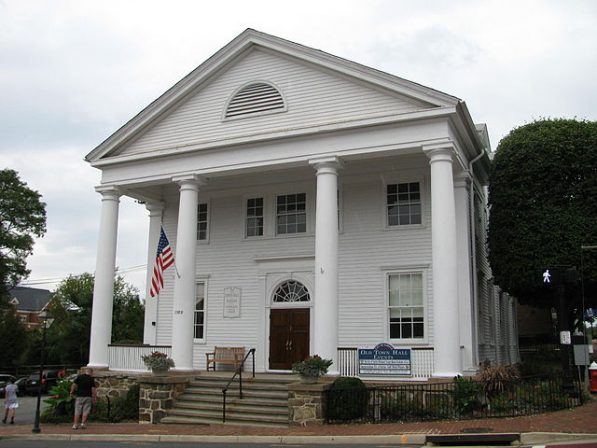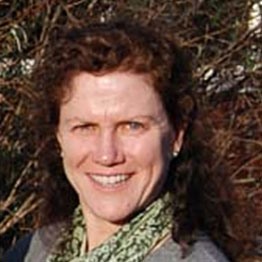Act Locally
October 2, 2017
By: Desiree DiMauro
Our class had just finished watching a video about plastics and their impact on the environment. The students enthusiastically debated the best ways to influence public behavior – how could we get people to decrease their purchases of single-use plastic bottles and disposable plastic bags? The answer that the students came up with is the same one they come up with every semester – education! If people just understand the impact of their actions, they will change their behavior.
Unfortunately, research strongly suggests this assumption is not accurate. Understanding environmental impacts doesn’t seem to lead directly to pro-environmental behavior. Research indicates that two of the tools that do seem to encourage pro-environmental behavior are:
- the removal of barriers to pro-environmental behavior, and
- modeling of pro-environmental behavior by role models.

Behavior Barriers: When we talk about “barriers,” what do we mean? Think about the time you had a soda on a hot day at a park. After the can was empty, you wanted it to be recycled. Looking around the park you can see several trash cans but no recycling bins. There’s your barrier to environmental behavior! Only the most motivated environmental steward will carry that can around until s/he finds a recycling bin; the rest of us will just toss the can in the nearest trash receptacle and hope to do better another day.
Behavior Modeling: Modeling is simply demonstrating a behavior for others to see. Advertisers use this technique every day. It may be through straightforward celebrity endorsements or through social media “influencers” showing folks the product that will change their lives.
As we try to move toward a more sustainable future, many local governments are now trying to figure out how best to encourage pro-environmental behavior. For example, the Town of Vienna, Virginia is currently incorporating both the removal of barriers and environmental modeling into a new program called the Sustainability Challenge.
Over the past two years, I’ve been leading the efforts of the Community Enhancement Commission of the Town of Vienna to develop this program. First, we drafted a checklist of environmental activities that businesses and non-profits could use to “green” their operations. The program is based on similar programs developed by several faith denominations, as well as other localities such as Fredericksburg, Virginia. This self-certification includes accomplishments in categories such as:
- water
- energy
- purchasing
- transportation
- waste reduction

After developing the checklist, our next task was to receive the buy-in from the town council – would we be able to remove barriers to implementation? Would businesses and non-profit organizations be able to implement the activities found in the checklist? First, our team visited several businesses to review the program and questionnaire to identify barriers to success. Then we removed any governmental barriers to the program. After several rewrites and revisions (which added a year to the development process), the town council approved the program. We had removed many of the barriers which currently prevented sustainability activities at our local businesses and non-profits.
So where does behavior modeling come in? In 2017, the first year of the program, the Town of Vienna currently has 4 businesses who have qualified for recognition. These sustainable businesses will be recognized for their efforts at a Town Council ceremony this Fall. Additionally, the businesses will be featured in newsletter articles and press releases. These articles allow the businesses to model their sustainable behavior and to encourage other businesses to join the effort. One article spotlights our winning businesses and they “throw down” a challenge to other local businesses to “go green!”
I’m very pleased to have led the Town of Vienna’s efforts to encourage pro-environmental behavior in its business and non-profit organizations. For the same reason, I’m also happy to be working with students in Virginia Tech’s Master of Natural Resources (MNR) Degree Program. Efforts to change environmental behavior at the local level demonstrate the importance of education. Well-trained environmental professionals, including our MNR graduates, can more effectively guide efforts to encourage pro-environmental behavior.

Desiree Di Mauro, PhD, co-teaches NR 5884 Water & Conflict for the Virginia Tech MNR Degree Program. Dr. Di Mauro is also a professor of biology and environmental studies at George Mason University, and Northern Virginia Community College. Her areas of expertise include water issues (including the Chesapeake Bay), endangered species management, and environmental education. She enjoys the challenge of finding solutions to natural resource and sustainability issues in her work with private industry, local government, and Federal agencies (USEPA, US Coast Guard). Photos: Trash cans by Paul Sableman, CC BY 2.0; Old Fairfax (VA) City Hall by Slowking4, CC BY-SA 3.0


